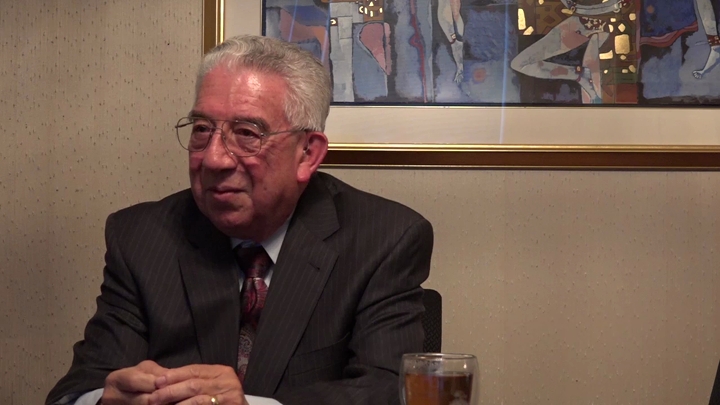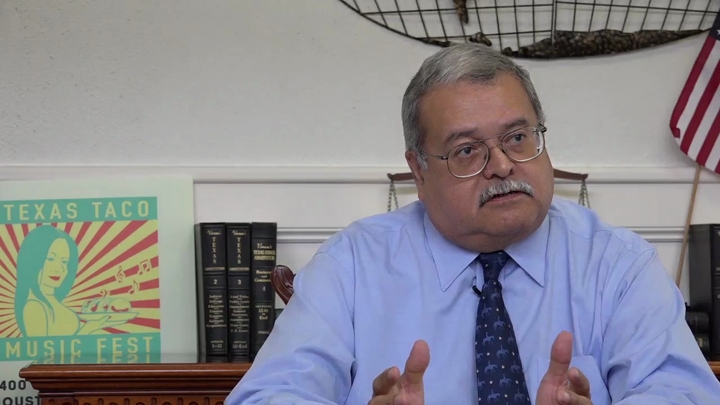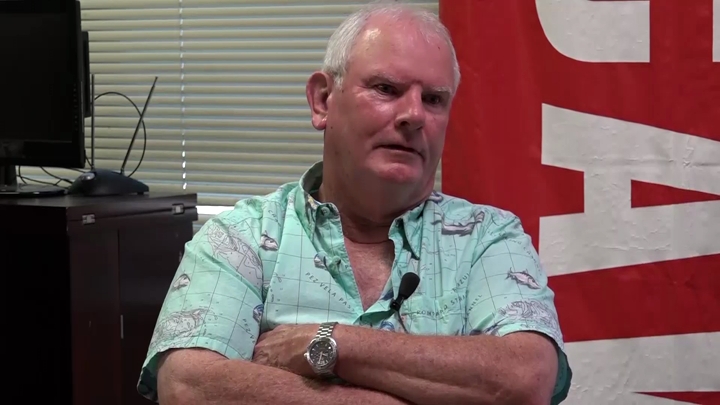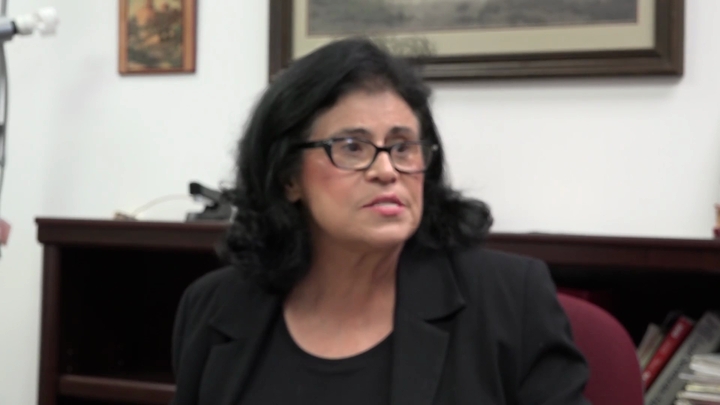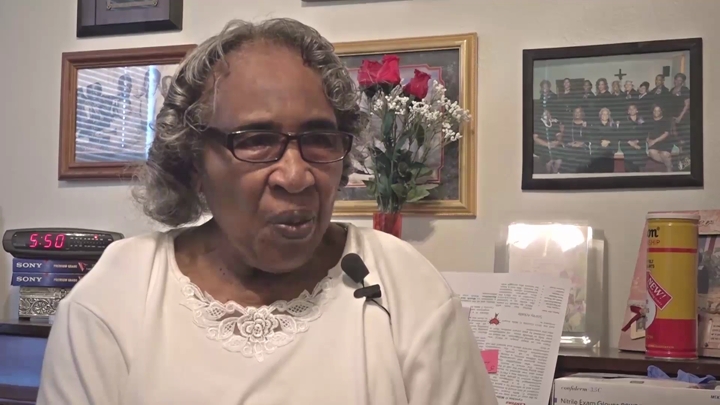Littleton / Work and Past Experiences
sign up or sign in to add/edit transcript
Interviewer: What jobs did you do while you were— Littleton: I worked for—from 1980 to 1985, I worked for the city of Odessa in the purchasing department. While I was working—let me go back. This is a shocker right here. You know when you’re in high school, everybody’s partying and stuff? We’re from little Crane. We come to Odessa, partying and everything. Some of my friends said let’s go to the clubs in Odessa. I’m like okay, okay. I never forget. We came to Odessa partying and it’s a little club on—I think it was the New Yorker. No, it wasn’t the New Yorker. Stage One. It was Stage One. It was right there on South Dixie and I was with my friends from Crane and we came over here to the club. You talk about a cultural shock? It shocked me. Really, it scared me because when I went in the club, it was an all-black club and I was like wow. So, I never forget, going over there, standing by the wall and I’m looking. There’s nothing but black people in the club, partying and having a good time, but that’s the first time in my life where I had been in a club where there’s all black people. I was so nervous. I was—I mean, you talk about nervous? I was past nervous, and we left. Everybody had a good time. I didn’t because I was just nervous. Didn’t know—We were going back home, and I was like what in the world? I just couldn’t believe it because, you know, coming from Crane. I have—my aunts are Hispanic. My little nieces are Anglos. I’m just from a very mixed family. I have a lot of Spanish relatives and Anglo relatives. That just shocked me. I couldn’t believe that. Nineteen eighty when I came in, I started going to OC. There’s a diverse group of people. When I came to Odessa in 1980—because when you live in Crane, you drive to Odessa to the grocery store. You drive to Odessa to the cleaners. So, you come over here to church all the time and you fellowship with people. So, everybody from Crane knows everybody from Odessa. So, it wasn’t really no big deal. When I started working for the city, I got involved in the community. I became a member of the Castanets Social Civics and Arts Club. I got involved in the church, you know, the church was my base. Being involved in the church and everything, you just learned who was who and when I was working with the city of Odessa, you know, I would just be working, meeting people. I don’t meet any strangers, as you can tell. I love to bump my gums. Hey, how you doing? How you doing? I’d see these little old ladies from church I would know and stuff. Hey, how you doing? How you doing? They’d be—"What’s wrong?” “Well, I’m up here to pay my water bill and they’re going to turn my water off,” and I’d say “No, no, they can’t do that.” I would say, “Come on. I’ll help you.” I would go over there and say this is Miss so-and-so. I know her. She’s my church member or I know her from the community and she can’t pay this water bill until the third of the month and you got to help her, blah, blah, blah. They would make arrangements and help her. Oh, Joann, thank you so much. Thank you so much. I’d go back and say, “Why don’t y’all tell these people that they can get assistance on their water bill? Y’all tell everybody else. You know, I’m looking. These little old Spanish ladies come in here. These little old black ladies, y’all don’t tell them, but you tell the other people. That’s not right.” Right about then, I got my nickname “Trouble” which didn’t bother me at all because I don’t—if you want to see me get upset, I hate when people are mistreated or treated like second-class citizens. I don’t like that. I don’t bite my tongue. I don’t like that. Things that I don’t like and things—I believe that everybody should be treated equal and if I’m around people or I’m connected to people and I feel like they’re not being treated fairly, you got trouble on your hands because you’re going to have to deal with me. I’m not an easy person to deal with when I get upset. I’m not. So, and as I worked at the city, I saw how people were being treated. This group gets special treatment and this group doesn’t. I didn’t like that and the more I worked in the community in Odessa, I saw a lot of things that I knew should have been taken care of, but they were not being taken care of. The fact that I was able to work at the city of Odessa for five years, that kind of gave me an insight as to what was the ins and outs and what was happening, to know who the players were. So, in 1995 I left the city and you know, I just kind of, what do you think? What do you think? Because I was a member of the Ector County Democrats and I was just talking around to people and they was like you know Joann, she got a mouth on her. She’s going to speak up. Why don’t—you know, Joann would be a good person to run for public office.
| Interview | Interview with Joann Littleton |
| Subjects | Family |
| Work | |
| Religion › Churches | |
| Community Organizations | |
| Electoral Politics › Democratic Party | |
| Recreation and Leisure › Social Gatherings | |
| Law and Public Policy › Public Assistance | |
| Tags | City of Odessa Service Department |
| Odessa Community College | |
| sign up or sign in to add/edit tags | |
| Interview date | 2016-07-06 |
| Interview source | CRBB Summer 2016 |
| Interviewees | Littleton, Joann |
| Duration | 00:07:10 |
| Citation | "Work and Past Experiences," from Joann Littleton oral history interview with , July 06, 2016, Odessa, TX, Civil Rights in Black and Brown Interview Database, https://crbb.tcu.edu/clips/3062/work-and-past-experiences, accessed February 13, 2026 |


